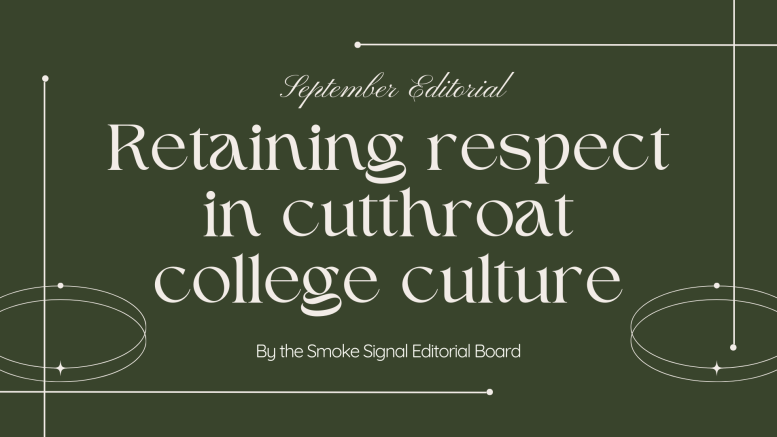By the Smoke Signal Editorial Board
“Thanks Trump!” one MSJ senior wrote on Instagram, reposting a news article about President Donald Trump’s foreign student visa restrictions. “Keep the ban on international student visas until next year!” Trump’s crackdown on student visas, the birth rate drop linked to the 2008 recession, and many elite colleges (i.e. Stanford University & Cornell University) reinstating their standardized testing requirements signify what college application influencers are dubbing the easiest year yet to get into a Top 20 school.
The idea that college admissions will be easier in any way for the 2025-26 application cycle has made its way to MSJ, and some students seem overjoyed at the allegedly easier chance at attaining that coveted acceptance letter from an Ivy League university. However, these developments not only undermine the equality of the college admissions process but also actively make it harder for lower-income and international students to access higher education.
International students account for 30% of applications for elite private colleges every year. However, that may soon change: since January, the government revoked more than 900 visas across 120 universities, complicated the process of attaining student visas, terminated visas for minor transgressions, and detained college students in public without giving any prior notice or reason. The uncertainty and fear around students’ visa situations contributes to an unsafe environment for international students, dissuading foreign applications.
Students should recognize the societal and economic repercussions of encouraging educational restrictions for both international and domestic students. Historically, higher education has meant opportunity — it was not only a reliable path for upwards social mobility but also an opportunity to start a life in America for international students. Today, a college degree is often required for well-paying jobs; according to the Association of Public & Land-Grant Universities, typical earnings for bachelor’s degree holders are 86% higher than those with only high school diplomas.
Standardized testing remains one of the greatest obstacles for disadvantaged high school students across the nation — the results of the SAT and ACT skew disproportionately in favor of high-income students, who typically have greater access to educational resources, such as tutors and preparatory classes. Only about 2.5% of the bottom 20% of the income distribution among SAT test-takers achieve a score of 1300 or higher. Those in support of standardized testing requirements are largely part of communities, such as MSJ, that would benefit from these requirements because they have the materials to achieve competitive scores. We, as students, should recognize the privilege we hold as a part of the MSJ community and retain empathy for those without equal access to the resources or education.
The issue of educational inequality has been framed only in the context of college admissions, but it should be interpreted as a call for all MSJ students to understand the educational privilege that we often ourselves overlook and the implications of decreasing the accessibility of education in America. A good SAT score or obtaining a student visa should not be barriers to higher education. Students should consider our own mindsets and the administration’s actions through the lens of our nation’s health and future instead of encouraging decisions that lessens accessibility to college education. MSJ students tend to dismiss global events — topics such as campus protests and climate change — as issues that don’t affect them, failing to realize their own role in those crises. Instead of instinctively separating educational news from the politics of their everyday lives, students should consider the widespread negative impacts of these policies through a broader scope
Within communities like MSJ, the emphasis on college applications can become so consuming that students forget there exists a world beyond their own lives. High school students are young adults — a generation capable of shaping the future. So, take a step back from the self-contained bubble of college applications and remember that what college you go to doesn’t define an entire lifetime, and to retain empathy for the many others who dream of having the resources, privileges, and choices that are readily available to us.


Be the first to comment on "September Editorial: Retaining respect in cutthroat college culture"